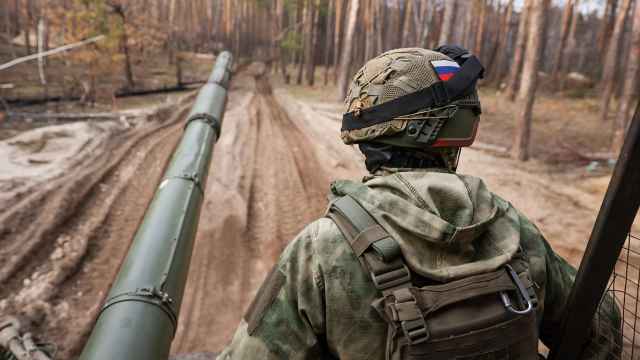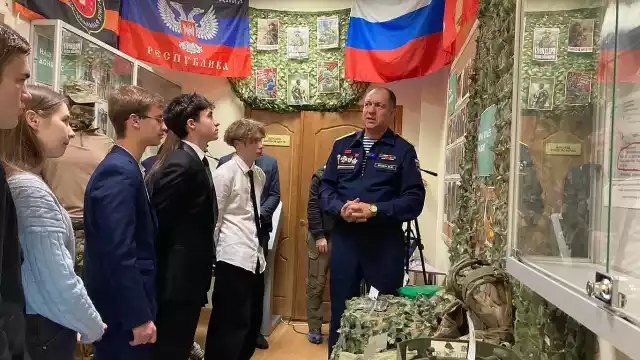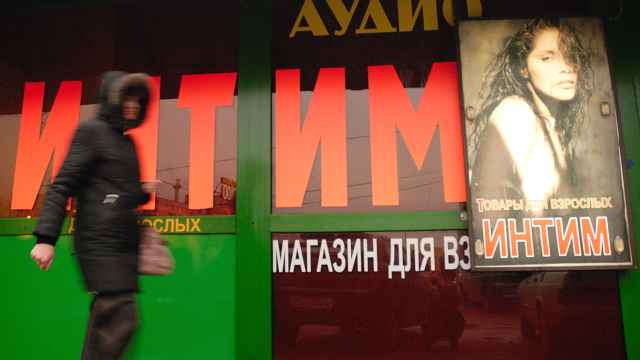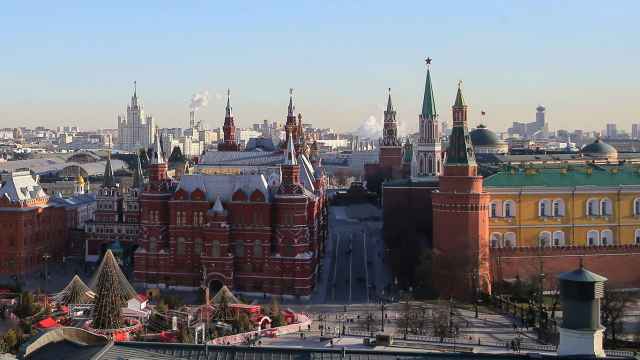Two powerful bombs targeted police buildings in Volgograd on Tuesday, but no one was injured after police were tipped off about the explosives hidden in packages.
It was unclear who masterminded the explosions, which caused minor damage to the buildings.
Volgograd Governor Anatoly Brovko said terrorism was not suspected because the circumstances of the blasts indicated that the bombers had not aimed to actually kill anyone.
Police offered no information on who might have planted the bombs but initiated checks into opposition leaders, a Volgograd-based member of the Other Russia coalition, Boris Stikhin, told Rosbalt.ru.
He said the incident might be related to Prime Minister Vladimir Putin's upcoming visit to Volgograd, where he is to take part in a United Russia conference next week. Stikhin did not elaborate.
One bomb was left in a bag by the fence of a traffic police building, Interfax said. Police were notified about the suspicious bag on Tuesday morning and managed to cordon off the area although not to disarm the bomb before the blast.
A bigger bag containing a bomb was spotted near a police academy later in the morning, the report said.
A bomb squad arrived at the site and dispatched a robot to detonate the bomb. But the bomb still went off, shattering windows and destroying an entry checkpoint to the academy and the robot, Interfax said.
Lifenews.ru reported that a female academy employee was shellshocked and hospitalized.
The first homemade bomb contained the equivalent of 200 grams of TNT, while the second was 10 times more powerful, police said.
An unidentified law enforcement official told Lifenews.ru that police have detained a man whose attire fit the description of the suspected bomber provided by witnesses. The man has been held for questioning, the source said, without elaborating.
But Governor Brovko denied that a suspect had been detained, Interfax said.
If detained, the bomber faces charges of hooliganism and the illegal possession of explosive devices, investigators said. The charges carry a maximum sentence of five and four years in prison, respectively.
Local Communist Party leader Andrei Shevchenko said police have cracked down on Volgograd opposition groups ahead of the State Duma elections in December. "They have started to pay more attention toward the protest groups," he said by telephone.
Stikhin said Islamist militants might be behind the blast, but Shevchenko dismissed the claim, saying it would damage North Caucasus businesses that traffic their goods through Volgograd. The entrepreneurs, fearing a crackdown, would have prevented the militants from staging an attack, he said.
Similar twin bombings occurred in Moscow in March, with the bombers targeting two Federal Security Service buildings. The attacks, in which no one was injured, remain unsolved.
A bomb blast killed two people and injured 16 in Volgograd ahead of the presidential election that Putin won in 2000. The bombing, which occurred on the grounds of a local army unit, was blamed on Saudi-born Islamist militant Abu Umar, an ally of the late Chechen warlord Shamil Basayev shot dead by federal forces in 2001.
A Message from The Moscow Times:
Dear readers,
We are facing unprecedented challenges. Russia's Prosecutor General's Office has designated The Moscow Times as an "undesirable" organization, criminalizing our work and putting our staff at risk of prosecution. This follows our earlier unjust labeling as a "foreign agent."
These actions are direct attempts to silence independent journalism in Russia. The authorities claim our work "discredits the decisions of the Russian leadership." We see things differently: we strive to provide accurate, unbiased reporting on Russia.
We, the journalists of The Moscow Times, refuse to be silenced. But to continue our work, we need your help.
Your support, no matter how small, makes a world of difference. If you can, please support us monthly starting from just $2. It's quick to set up, and every contribution makes a significant impact.
By supporting The Moscow Times, you're defending open, independent journalism in the face of repression. Thank you for standing with us.
Remind me later.





